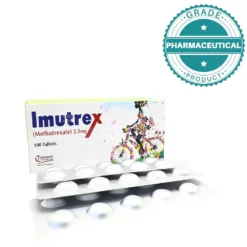-
×
 10% L-ASCORBIC ACID SERUM - DISPENSING ITEMS BY HEALERS PHARMA
₨ 1,950
10% L-ASCORBIC ACID SERUM - DISPENSING ITEMS BY HEALERS PHARMA
₨ 1,950 -
×
 Pillus Hair Spray 60ml | Anti Hair Fall Spray with Provitamin B5, Vitamin B6, Zinc & Elastin | derma.pk
₨ 2,800
Pillus Hair Spray 60ml | Anti Hair Fall Spray with Provitamin B5, Vitamin B6, Zinc & Elastin | derma.pk
₨ 2,800 -
×
 THE INKEY LIST OAT CLEANSING BALM 50ml
₨ 10,360
THE INKEY LIST OAT CLEANSING BALM 50ml
₨ 10,360 -
×
 Arix Cetirizine 2HCl Oral Solution – Allergy & Hay Fever Relief | 60ml
₨ 178
Arix Cetirizine 2HCl Oral Solution – Allergy & Hay Fever Relief | 60ml
₨ 178 -
×
 Complete Makeup Look: Miss Rose Lipsticks, Maybelline Fit Me Foundation & Glamourous Curl Mascara | derma.pk
₨ 8,300
Complete Makeup Look: Miss Rose Lipsticks, Maybelline Fit Me Foundation & Glamourous Curl Mascara | derma.pk
₨ 8,300 -
×
 GARNIER COLOR NATURALS 4.3 GOLDEN BROWN
₨ 999
GARNIER COLOR NATURALS 4.3 GOLDEN BROWN
₨ 999 -
×
 10% SULPHUR CREAM 100mg- DISPENSING ITEMS
₨ 520
10% SULPHUR CREAM 100mg- DISPENSING ITEMS
₨ 520 -
×
 THE INKEY LIST NIACINAMIDE SERUM 30ml
₨ 6,693
THE INKEY LIST NIACINAMIDE SERUM 30ml
₨ 6,693 -
×
 ANTONYM ORGANIC BAKED BLUSH IN PEACH 8g
₨ 15,825
ANTONYM ORGANIC BAKED BLUSH IN PEACH 8g
₨ 15,825 -
×
 4G BENEFIT HOOLA BRONZING POWDER
₨ 8,606
4G BENEFIT HOOLA BRONZING POWDER
₨ 8,606 -
×
 MAC STUDIO FIX POWDER PLUS FOUNDATION IN SHADE NC20 15g
₨ 8,245
MAC STUDIO FIX POWDER PLUS FOUNDATION IN SHADE NC20 15g
₨ 8,245 -
×
 BEECA SHIMMERING SKIN PERFECTOR IN ROSE QUARTZ 2.6g
₨ 9,563
BEECA SHIMMERING SKIN PERFECTOR IN ROSE QUARTZ 2.6g
₨ 9,563 -
×
 BLYSMO BB NIGHT CREAM FOR MEN AND WOMEN BOTH 30g
₨ 2,450
BLYSMO BB NIGHT CREAM FOR MEN AND WOMEN BOTH 30g
₨ 2,450 -
×
 BLYSMO TEA TREE CLEANSER 100ml
₨ 1,700
BLYSMO TEA TREE CLEANSER 100ml
₨ 1,700 -
×
 ACNE TIQUE Face Wash 120ml - Refreshing Cleanser for Acne-Prone Skin
₨ 1,700
ACNE TIQUE Face Wash 120ml - Refreshing Cleanser for Acne-Prone Skin
₨ 1,700 -
×
 CaC 1000 Plus for Skin Whitening - Calcium & Vitamin Boost
₨ 493
CaC 1000 Plus for Skin Whitening - Calcium & Vitamin Boost
₨ 493 -
×
 BIONNEX ANTI DANDRUFF SHAMPOO 300ml
₨ 3,990
BIONNEX ANTI DANDRUFF SHAMPOO 300ml
₨ 3,990 -
×
 BENEFIT DEW HOOLA SOFT MATTE LIQUID FACE BRONZER - 5.0ML
₨ 12,746
BENEFIT DEW HOOLA SOFT MATTE LIQUID FACE BRONZER - 5.0ML
₨ 12,746 -
×
 SKIN AQUA CLEAR WHITE SPF 50+ PA+++ BROAD SPECTRUM SUNSCREEN FOR SKIN
₨ 2,055
SKIN AQUA CLEAR WHITE SPF 50+ PA+++ BROAD SPECTRUM SUNSCREEN FOR SKIN
₨ 2,055 -
×
 GARNIER LC DARK SPOT SERUM 30ml
₨ 1,799
GARNIER LC DARK SPOT SERUM 30ml
₨ 1,799 -
×
 Christine Loose Face Shiner Sun Gold 415 | derma.
₨ 1,480
Christine Loose Face Shiner Sun Gold 415 | derma.
₨ 1,480 -
×
 DERMOFUTURE HAIR AND SCALP PEELING 300ml
₨ 9,000
DERMOFUTURE HAIR AND SCALP PEELING 300ml
₨ 9,000 -
×
 ALOE VERA GEL 60ml | DESPENSING ITEMS
₨ 1,014
ALOE VERA GEL 60ml | DESPENSING ITEMS
₨ 1,014 -
×
 BENEFIT HOOLA BRONZING POWDER - FULL SIZE 8G
₨ 9,345
BENEFIT HOOLA BRONZING POWDER - FULL SIZE 8G
₨ 9,345 -
×
 BECCA FOUNDATION IN FAIR TONE- 30ml
₨ 10,555
BECCA FOUNDATION IN FAIR TONE- 30ml
₨ 10,555 -
×
 ANASTASIA LIQUID MATTE LIPSTICK IN DAZED 3.5G
₨ 8,245
ANASTASIA LIQUID MATTE LIPSTICK IN DAZED 3.5G
₨ 8,245 -
×
 BEAUWELL Retinol Serum with 5% Hyaluronic Acid | Anti-Aging & Skin Rejuvenation
₨ 5,700
BEAUWELL Retinol Serum with 5% Hyaluronic Acid | Anti-Aging & Skin Rejuvenation
₨ 5,700 -
×
 BENEFIT GOGO TINT LIP & CHEEK STAIN - 6ml
₨ 9,563
BENEFIT GOGO TINT LIP & CHEEK STAIN - 6ml
₨ 9,563 -
×
 BB BLOOM ALL IN ONE BB CREAM 30g
₨ 1,599
BB BLOOM ALL IN ONE BB CREAM 30g
₨ 1,599 -
×
 E.L.F MATTE LIPSTICK IN FUCHSIA 1.4g
₨ 2,864
E.L.F MATTE LIPSTICK IN FUCHSIA 1.4g
₨ 2,864 -
×
 Cudrova Spazio Scalp Relief Discount Box: Anti-Dandruff Shampoo & Serum (derma.pk)
₨ 7,465
Cudrova Spazio Scalp Relief Discount Box: Anti-Dandruff Shampoo & Serum (derma.pk)
₨ 7,465 -
×
 BENE TINT ROSE-TINTED LIP & CCEEK STAIN BY BENEFIT - 6ml
₨ 6,850
BENE TINT ROSE-TINTED LIP & CCEEK STAIN BY BENEFIT - 6ml
₨ 6,850 -
×
 MILANI 2-in-1 FOUNDATION + CONCEALER 00AA IVORY 30ml
₨ 3,495
MILANI 2-in-1 FOUNDATION + CONCEALER 00AA IVORY 30ml
₨ 3,495 -
×
 Depiwhite Cream for Eyes - Brightens Dark Circles & Reduces Puffiness
₨ 4,625
Depiwhite Cream for Eyes - Brightens Dark Circles & Reduces Puffiness
₨ 4,625 -
×
 ANTONYM CERTIFIED ORGANIC HIGHLIGHTER ON SUMMER 8g
₨ 5,495
ANTONYM CERTIFIED ORGANIC HIGHLIGHTER ON SUMMER 8g
₨ 5,495 -
×
 LIP & CHEEK SERUM TINT CANDY 10ml BY GLOW & GLEE
₨ 1,995
LIP & CHEEK SERUM TINT CANDY 10ml BY GLOW & GLEE
₨ 1,995 -
×
 RIVAJ MATTE BLACK LIQUID EYELINER 6ml
₨ 495
RIVAJ MATTE BLACK LIQUID EYELINER 6ml
₨ 495 -
×
 D-CARE MOISTURIZING LOTION 150ml
₨ 732
D-CARE MOISTURIZING LOTION 150ml
₨ 732 -
×
 DIOR ROUGE 999 MATTE LIPSTICK 3.5G
₨ 15,390
DIOR ROUGE 999 MATTE LIPSTICK 3.5G
₨ 15,390 -
×
 ANTONYM CERTIFIED ORGANIC BAKED FOUNDATION - SHADE: FAIR CLAIR 8.5g
₨ 5,495
ANTONYM CERTIFIED ORGANIC BAKED FOUNDATION - SHADE: FAIR CLAIR 8.5g
₨ 5,495 -
×
 RICA TALC-ENHANCED LIPOSOLUBLE WAX 400ml
₨ 2,415
RICA TALC-ENHANCED LIPOSOLUBLE WAX 400ml
₨ 2,415 -
×
 BECCA MOONSTONE SHIMMERING HIGHLIGHTER 2.4g
₨ 9,563
BECCA MOONSTONE SHIMMERING HIGHLIGHTER 2.4g
₨ 9,563 -
×
 BATH & BODY BALI COCONUT SANDS BODY CREAM 226g
₨ 4,395
BATH & BODY BALI COCONUT SANDS BODY CREAM 226g
₨ 4,395 -
×
 BENEFIT PORE FESSIONAL PORE PRIMER - 7.5ml
₨ 5,495
BENEFIT PORE FESSIONAL PORE PRIMER - 7.5ml
₨ 5,495 -
×
 Clean & Clear Face Wash | Oil-Free Daily Cleanser for Clear Skin
₨ 545
Clean & Clear Face Wash | Oil-Free Daily Cleanser for Clear Skin
₨ 545 -
×
 Nighttime Skincare & Flawless Makeup: CeraVe PM + Miss Rose Foundation - sale
₨ 7,198
Nighttime Skincare & Flawless Makeup: CeraVe PM + Miss Rose Foundation - sale
₨ 7,198 -
×
 VICTORIA'S SECRET COCONUT PASSION BODY MIST 250ml
₨ 6,790
VICTORIA'S SECRET COCONUT PASSION BODY MIST 250ml
₨ 6,790 -
×
 GLOW & GLEE FOAMING FACIAL CLEANSER 240ml
₨ 2,995
GLOW & GLEE FOAMING FACIAL CLEANSER 240ml
₨ 2,995
You may be interested in…
-
Add
 Cleanser for Oily Face - Aklen Foaming Cleanser for Acne-Prone Skin
Rated 4.40 out of 5(5) ₨ 2,006
Cleanser for Oily Face - Aklen Foaming Cleanser for Acne-Prone Skin
Rated 4.40 out of 5(5) ₨ 2,006 -
Add
 Best Cleanser for Oily Skin - Hudson Gentle Cleansing Formula
Rated 4.50 out of 5(4) ₨ 1,250
Best Cleanser for Oily Skin - Hudson Gentle Cleansing Formula
Rated 4.50 out of 5(4) ₨ 1,250 -
Add
 Effaclor Acne Face Wash | Hanis ceuticals
Rated 4.64 out of 5(11) ₨ 1,198
Effaclor Acne Face Wash | Hanis ceuticals
Rated 4.64 out of 5(11) ₨ 1,198 -
Add
 Complete Skincare Trio Discount Box : White Balance, Frulic C Serum & UV Matt Sunscreen
Rated 4.63 out of 5(8)
Complete Skincare Trio Discount Box : White Balance, Frulic C Serum & UV Matt Sunscreen
Rated 4.63 out of 5(8)₨ 4,780Original price was: ₨ 4,780.₨ 4,541Current price is: ₨ 4,541. -
Add
 Aqua Color Line Long Wear Nail Polish 15ml - Shade 205
Rated 4.50 out of 5(10) ₨ 249
Aqua Color Line Long Wear Nail Polish 15ml - Shade 205
Rated 4.50 out of 5(10) ₨ 249




